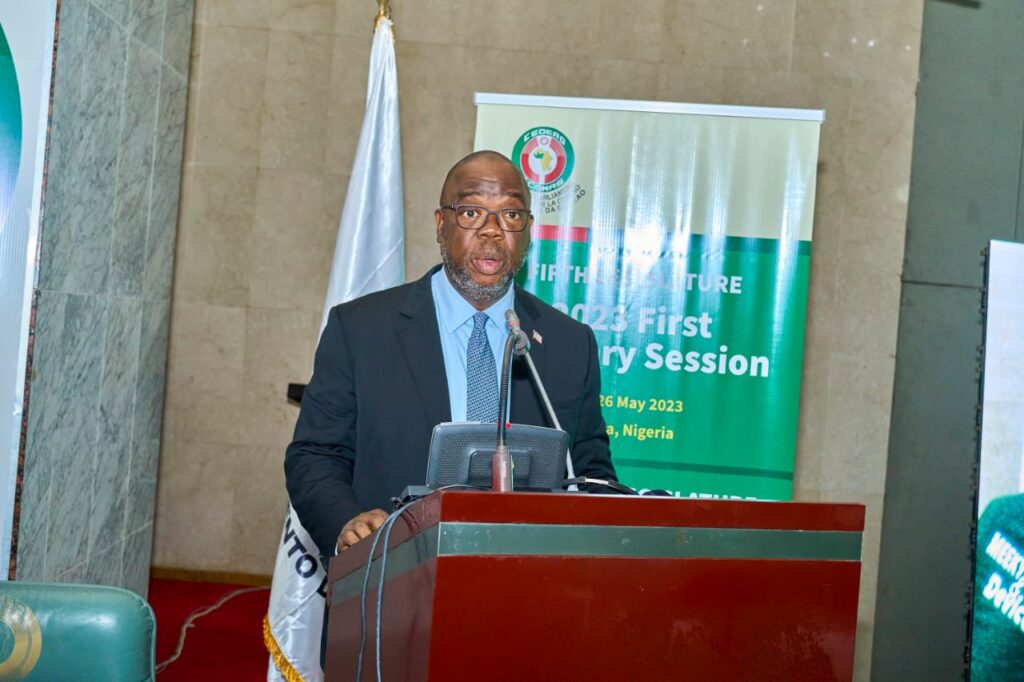ECOWAS Community Parliament Chairman attributes terrorism in West Africa to hunger and joblessness

Mr Edwin Melvin Snowe Jr., Chairman, Economic Community of West African States Community Parliament’s Committee on Political Affairs, Peace, Security and Africa Peer Review Mechanism, has attributed the surge in the threat of terrorism within the West Africa, to hunger and joblessness.
Mr Snowe Jr. in an interview with the Ghana News Agency (GNA) has therefore called for the creation of more jobs for the citizens and invest in the education sector.
“We need to create more jobs for our people; invest in the education sector. If you stay in a country and the citizens feel like it is them versus us, it gives room for curious and deviant behaviour.
“We need to invest more in education and work on our poverty reduction strategy because when people’s pockets are empty and stomachs empty, they would revert to means that can put food on their table,” he said.
According to him, the trend where citizens were against leaders had pushed the sub-region to its current state, especially when the youth in the sub-region felt that they could not afford food and they felt they needed to do something that provided them food, “It’s wrong there is no justification for this.”
Mr Snowe Jr. advocated that young people within the sub-region should be given a sense of national ownership to enable them to feel they were part of those who own the country and their destiny.
“You do not go out there to create chaos as a young person, which would affect yourself. Again the global economy is challenged; people are broke, prices everywhere are going up, I do not know about Nigeria but salaries for civil servants are not going up and pay roles for business are not going up,” he told the
Mr Snowe Jr. explained that terrorism was linked to economics, and if people believed they could not survive but the only way to survive was to cause havoc for them to live it was wrong.
On Dr Omar Alieu Touray, the Economic Community of West African States (ECOWAS) Commission President’s report on tackling terrorism by raising a brigade, he said “Sometimes things are good for the ears but implementing is a problem.
“If you listen to the budget size in billions is not an easy thing, it’s good to do but it’s difficult now in terms of finance,” he said.
The Community Parliament is currently at the 2023 First Ordinary Session of Parliament in Abuja-Nigeria.
The 2023 First Ordinary Session of Parliament, which opened on Monday, May 8 2023 and is expected to end on Friday, May 26 had been convened under Article 21.1 of the Supplementary Act relating to the enhancement of the powers of the ECOWAS Parliament, which provided that Parliament should meet twice a year in Ordinary Sessions to provide a platform to deliberate and strengthen Member States’ position on issues of regional and continental importance.
As provided for in Article 32 of the supplementary Act, the Session also provides the President of the ECOWAS Commission to present a general report on the implementation of the Community Work Programme to the Plenary, where the House would be updated with developments in the Community, which was usually followed by debates, expressed opinions and recommendations.
The National Delegates also have the opportunity to present their country’s reports as a means of informing the Body on unfolding developments in their respective Member States and the status of implementation of their community’s texts.
That also allowed Members of Parliament (MPs) to ask critical questions on happenings within the sub-region and how they should be addressed.
At each Ordinary Session of the ECOWAS Parliament, the President of the Commission presents a general report on the state of implementation of the Community Work Programme.
The presentation of the State of the Community report provides an opportunity for MPs as representatives of the ECOWAS citizens to track and oversee the implementation of the Community Programmes.
Source: GNA
